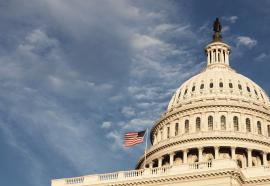The Art of the Plausible
Prospects for clean energy legislation in 2011.
With budget battles heating up in Washington, Congress and the Obama administration are squaring off to debate energy policy legislation. While Democratic leadership favors a clean energy standard, Republican lawmakers are focused on blocking administration initiatives to regulate greenhouse gas emissions. A compromise approach might bring substantial changes to America’s national energy strategy.



